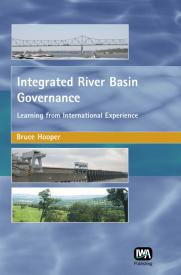Would the poor slum dweller contribute financially for water supply and why?
Following the publication of research from 23 slums of Kolkata, India, author Indranil De considers the willingness of different ethnic groups to pay for better water supply and the factors that affect this.
Experiences of Budapest Waterworks with state, municipal ownership structures and with the involvement of private funding
This journal author post covers some key points of a case study of Budapest Waterworks during changes of ownership and funding, considering the pros and cons of private funding and of Public Private Partnership projects in the water sector.
Transboundary water politics as processes: the ‘circle of hydro-hegemony’
In a time of global political disenchantment, author Filippo Menga shares his opinion on the politics of water.
Flood Control and Disaster Management
Flood control refers to all methods used to reduce or prevent the detrimental effects of flood waters (wikipedia). Some of the common techniques used for flood control are installation of rock berms, rock rip-raps, sandbags, maintaining normal slopes with vegetation or application of soil cements on steeper slopes and construction or expansion of drainage channels. Other methods include levees, dikes, dams, retention or detention basins. After the Katrina Disaster that happened in 2005, some areas prefer not to have levees as flood controls. Communities preferred improvement of drainage structures with detention basins near the sites.
Disaster Management
Disaster management plans are multi-layered and are aimed to address such issues as floods, hurricanes, fires, bombings, and even mass failures of utilities or the rapid spread of disease. The disaster plan is likely to address such as important matters as relinquishing people from an impacted region, arranging temporary housing, food, and medical care.
The Impact of Privatisation on the Sustainability of Water Resources
This research investigates potential contributions by the privatization of water production to sustainability of water supply. The main objective is to examine the perceptions of stakeholders concerning privatization as a water governance model and its contribution to water sustainability.
This research provides a robust reference for future planning in the water sector, hinting at the importance of considering public-private partnerships at the federal level as an appropriate model for water sustainability.
 Integrated River Basin Governance
Integrated River Basin Governance
ISBN: 9781843390886
eISBN: 9781780402970
Integrated River Basin Governance - Learning from International Experience is designed to help practitioners implement integrated approaches to river basin management. (IRBM). It aims to help the coming generation of senior university students learn how to design IRBM and it provides current researchers and the broader water community with a resource on river basin management.
Drawing on both past and present river basin and valley scale catchment management examples from around the world, the book develops an integration framework for river basin management. Grounded in the theory and literature of natural resources management and planning, the thrust of the book is to assist policy and planning, rather than extend knowledge of hydrology, biophysical modelling or aquatic ecology. Providing a classification of river basin organizations and their use, the book also covers fundamental issues related to implementation: - decision-making - institutions and organizations - information management - participation and awareness - legal and economic issues - integration and coordination processes - building human capacity. Integrated River Basin Governance focuses on the social, economic, organizational and institutional arrangements of river basin management. Methods are outlined for implementing strategic and regional approaches to river basin management, noting the importance of context and other key elements which have been shown to impede success. The book includes a range of tools for river basin governance methods, derived from real life experiences in both developed and developing countries. The successes and failures of river basin management are discussed, and lessons learned from both are presented.